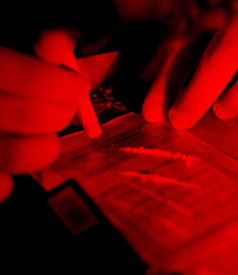Washington – The House of Representatives passed a historic bill Wednesday that narrows sentencing disparities between crack and powder cocaine convictions, which civil rights and civil liberties experts say contributed to the disproportionate imprisonment of African-Americans in recent decades.
The Senate passed its version of the bill in March. President Barack Obama, who during the 2008 presidential campaign said the current legal disparity “cannot be justified and should be eliminated,” is expected to sign the legislation.
By voice vote, the House altered a law implemented in 1986 during the early phase of the crack cocaine epidemic. It required anyone convicted of possession of five grams of crack to be sentenced to at least five years in prison.
Many lawmakers and organizations such as the NAACP and the American Civil Liberties Union complained for nearly a quarter century that the law was unfair because someone convicted of crack possession got the same mandatory sentence as someone convicted of possessing 100 times that amount of powder cocaine, a drug more popular among whites.
A 2009 report by the Sentencing Project, a liberal advocacy group, found that drug use rates were similar among racial and ethnic groups, but that sentencing among the groups for cocaine violations was vastly different, in large part because of the disparity between sentences for crack and powder cocaine.
In 2006, 81.8 percent of crack cocaine defendants were black, 8.8 percent were white and 8.4 percent were Hispanic, according the Sentencing Project report. For the same year, 57.5 percent of powder cocaine defendants were Hispanic, 27 percent were African-American and 14.7 were percent white.
“African American drug defendants have a 20 percent greater chance of being sentenced to prison than white drug defendants,” the Sentencing Project report said. “Between 1994 and 2003, the average time served by African Americans for drug offenses increased by 62 percent, compared to an increase of 17 percent for white drug offenders.”
The House bill raises the five-year mandatory minimum sentencing trigger for crack possession from five grams to 28 grams and eliminates mandatory minimum sentencing for simple possession of crack. Possession of 500 grams of powder cocaine carries a mandatory minimum five years in prison under the bill.
Click here to sign up for Truthout’s FREE daily email updates.
“In passing the Fair Sentencing Act today, the House sent a bill to President Obama that is a step forward in addressing the fairness of our sentencing laws,” said House Speaker Nancy Pelosi, D-Calif. “This legislation reduces the disparity between sentences for crack and powder cocaine — a step long overdue.”
Civil rights groups applauded the House vote and urged Obama to sign the bill quickly.
“Because of the mandatory minimum jail sentence for those convicted of possession of 5 grams of crack cocaine or more, people of color are being put in prisons at much higher rates than their Caucasian counterparts, and the judges have no discretion to mitigate the sentence for first-time or nonviolent offenders or special circumstances,” NAACP President Benjamin Jealous said. “This legislation is just the first step in eliminating disparities in sentencing, and we will continue to push for the elimination of this racially discriminatory sentencing disparity.”
Join us in defending the truth before it’s too late
The future of independent journalism is uncertain, and the consequences of losing it are too grave to ignore. To ensure Truthout remains safe, strong, and free, we need to raise $46,000 in the next 7 days. Every dollar raised goes directly toward the costs of producing news you can trust.
Please give what you can — because by supporting us with a tax-deductible donation, you’re not just preserving a source of news, you’re helping to safeguard what’s left of our democracy.
